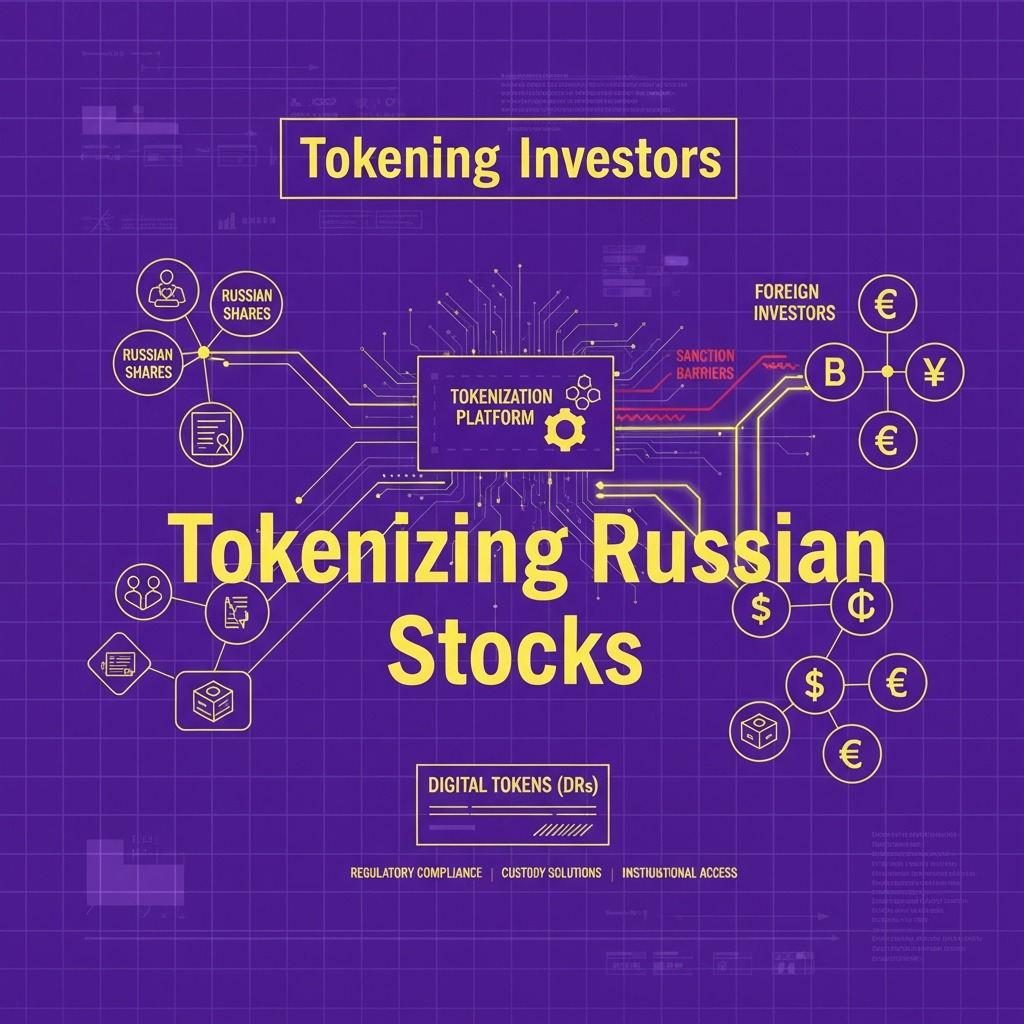The Bank of Russia has announced plans to potentially allow the tokenization of Russian company shares, aiming to open new avenues for foreign investment despite ongoing Western sanctions. This initiative was outlined by Vladimir Chistyukhin, the central bank’s first deputy governor, during the Finopolis 2025 forum held on October 9.
Chistyukhin indicated that tokenizing equities could enable Russian assets to be traded abroad in digital form. However, he emphasized that the success of this venture largely depends on the participation of foreign partners willing to issue and manage tokenized versions of Russian stocks outside the country. Such cooperation presents a challenge given current restrictions imposed by U.S. and European authorities.
Since early 2022, both the U.S. Treasury’s Office of Foreign Assets Control (OFAC) and the European Union have implemented sanctions that effectively prohibit investors in their jurisdictions from purchasing Russian equity and debt securities. OFAC’s measures block U.S. persons from buying either new or existing Russian financial instruments under several executive orders, while the EU has banned transactions involving transferable securities issued by public Russian entities after April 12, 2022.
The tokenization plan builds on an earlier proposal by Moscow Exchange chairman Sergey Shvetsov. As reported by RBC on September 29, Shvetsov suggested that the exchange could offer global investors access to Russian assets by circumventing intermediaries and infrastructure affected by Western sanctions.
Currently, the Moscow Exchange’s flagship index, IMOEX, which tracks the 50 largest and most liquid Russian stocks, has declined approximately 34% since early 2022, standing near levels last observed in April 2022.
Alongside efforts to tokenize equities, the Moscow Exchange is expanding its crypto-related initiatives. According to Viktor Zhidkov, head of the exchange, the existing Bitcoin index—based on trading data from prominent platforms such as Binance and Bybit—will soon be joined by ten additional indices covering various crypto assets including spot Bitcoin and Ethereum. Pending regulatory clearance, the exchange also intends to launch futures and options products tied to these new crypto indices.
The idea of tokenized securities is gaining international momentum. For example, in early October, Galaxy Digital projected the tokenized asset market could grow to a $1.9 trillion market capitalization by 2030, though tokenized equities represent a smaller fraction of this sector. Additionally, Nasdaq recently applied to offer tokenized versions of its listed stocks and exchange-traded products, signaling broader industry interest in blockchain-based securities.
Russia’s push to develop blockchain-based trading solutions appears designed to attract foreign investment while navigating the complexities of sanctions. However, the initiative’s execution will depend heavily on foreign entities prepared to facilitate trading of tokenized Russian assets beyond traditional financial channels.



